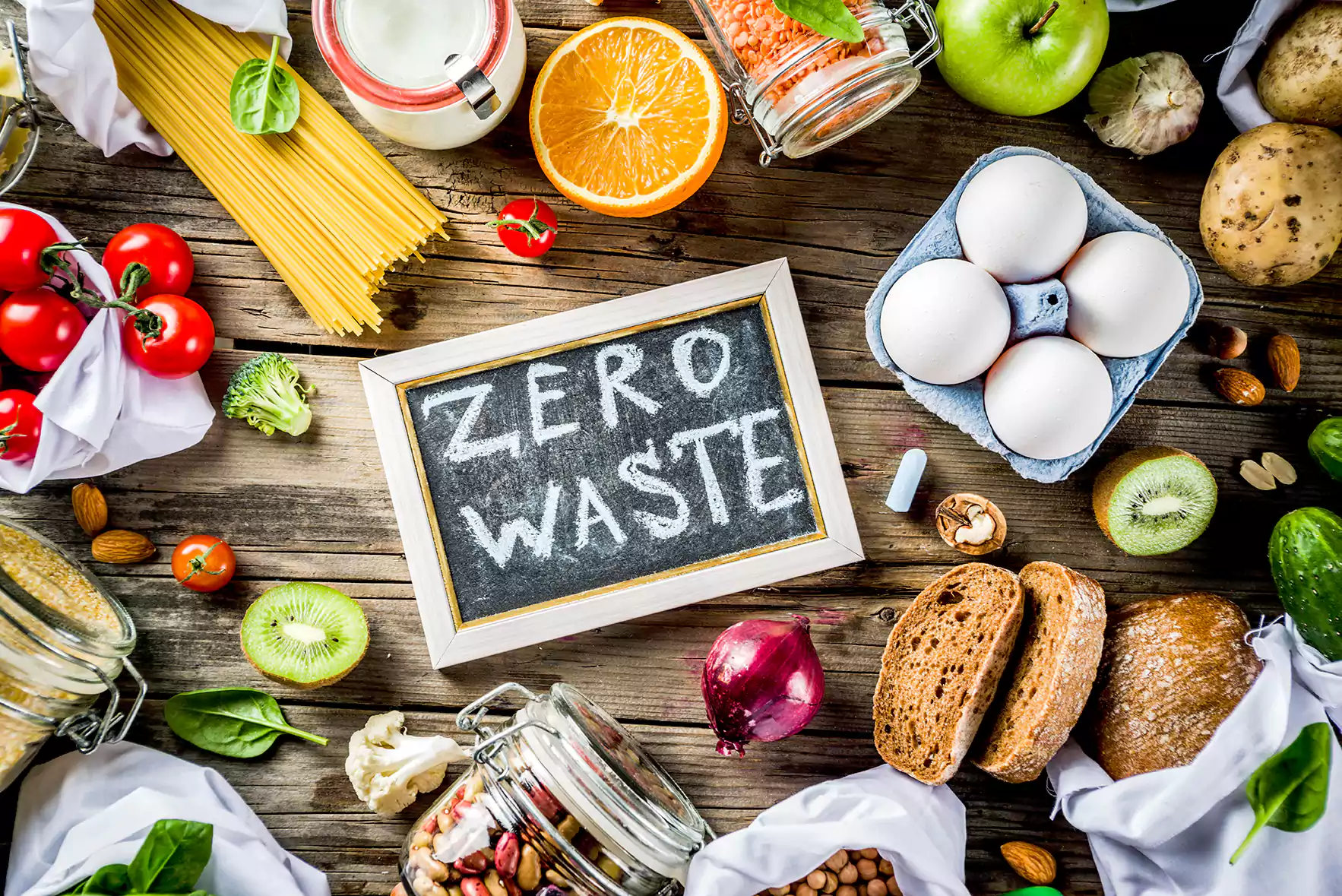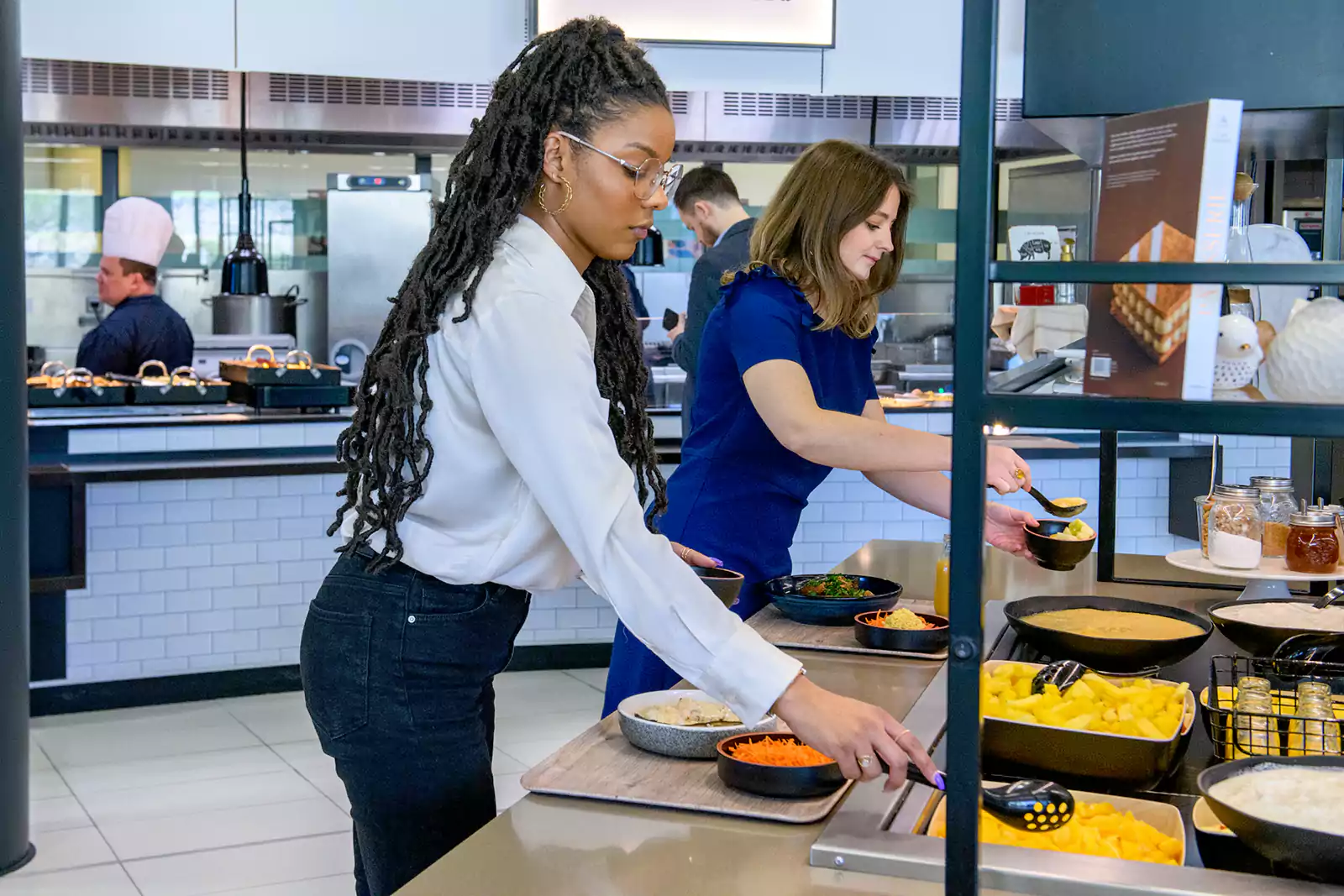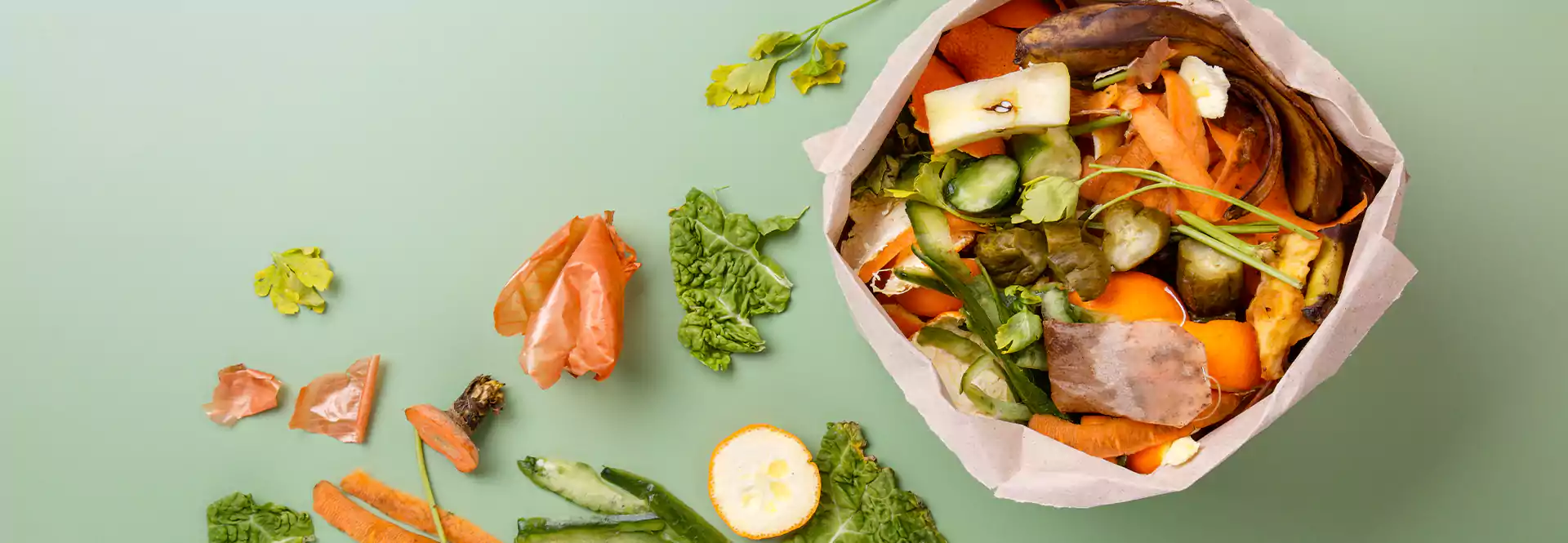Here in the Middle East, we’re meeting our food waste reduction goals, helping our clients meet their own sustainability targets, and making plans to go even further. Here’s how we are addressing the issue.
Around a third of food produced in the world is wasted. It’s a startling statistic, but one we want to tackle. Since launching Sodexo’s WasteWatch program in 2021, we’ve already cut our food waste by 20 percent across dozens of client sites where we provide catering services. Here in the Middle East, we’re meeting our food waste reduction goals, helping our clients meet their own sustainability targets, and making plans to go even further. Here’s how we are addressing the issue.
Why is Food Waste so Important to Tackle?
.png)
Food waste is a significant global problem because it has ethical, environmental and economic implications. At the most basic level, many people find it unsettling to waste food when many around the world go hungry. Even putting the moral argument aside, financially speaking, wasted food translates into wasted spending.
Arguably it’s the environmental impact that is most dramatic, through both production and disposal. Food waste is responsible for around 10 percent of greenhouse gas emissions worldwide. To give context, if “food waste” was a country, it would be the third biggest carbon emitter in the world.
What is Sodexo Waste Watch?

Sodexo provides a range of catering services as part of its portfolio of integrated facilities management services. Since 2021, we’ve been steadily rolling out a program called WasteWatch and will eventually use it in 85% of our client sites. It lets staff use dedicated devices and input systems to measure actual food usage and waste at every stage of the process. This provides far more accurate data than either estimating or taking a small sample and extrapolating.
The system gives both a big-picture overview and granular-level details about where food is wasted and whether we are meeting targets. As well as highlighting priority areas to eliminate waste, it also lets us inspire staff to make behavioral changes by quantifying the effects of their actions and efforts. The initiative also creates benefits for our clients by helping to reach their sustainability targets and offering a different perspective on nutrition and waste to their customers and teams.
How are we Doing?
Both globally and here in the Middle East, the figures show we’re well on the way to achieving our goals but there’s still some hard work to be done.
Since August 2021, we’ve reduced food waste in our client sites by 20 percent. Our goal is to reach a 50 percent reduction by 2025, so we’re well on the way to the target.
To put that into context, that’s a reduction of 27,459 kilograms of actual food waste. It’s equivalent to a reduction of 400 metric tons of carbon emissions, the same amount produced by approximately 285 households.
Here in the Middle East, we’re tracking our progress on specific goals. Across Oman, Qatar and the UAE, we’ve had 60 goals in place until last February when we stepped up our ambition, increasing to a total of 257 goals. At last count, with the helo of our clients, staff, and diners, 82 of those goals we accomplished, translating to a 31.9 percent completion rate.
How are we Making This Progress?

Impressive and valuable as the WasteWatch technology is, it doesn’t work unless all stakeholders are involved and fully bought into the process and the goals behind the policy. That includes our clients, our staff, and the people dining every day in our client’s facilities. Achieving these results here in the Middle East has been as much a management operation as a technical one.
For example, we’ve carried out on-site training, so staff know the best way to use WasteWatch to its full potential, and diners are informed of the principles and goals. We’ve coordinated with senior leaders to make sure that getting all relevant data into WasteWatch becomes part of their team’s routines, and, depending on the facility, we’ve used a combination of governance calls and site visits to keep the project in the forefront of people’s minds. Following up has been key, not just to make sure managers and staff act on recommendations, but to work with all stakeholders to learn more from them about their experiences and to understand how different facilities can use WasteWatch without disrupting their workflow.
What are the Key Takeaways?
Food waste remains one of the key challenges for society today and it’s something that will directly impact future generations. It’s important for us all to recognise and remember the significant influence we can have on the issue today, rather than fall into the trap of believing we are powerless in the face of such large-scale environmental concerns.
As an integrated facilities management company, Reducing food waste is not solely an ethical issue or environmental responsibility. it’s also a financial necessity to reduce food waste because it can directly affect the bottom line. Using – and making the most of – the WasteWatch technology is the heart of Sodexo’s strategy to tackle food waste. Through this initiative, we help our clients save money, hit their sustainability goals and reduce their impact, whilst at the same time empowering and inspiring our own teams to make a real difference.
We’ve made a lot of progress so far and are on target to meet our overall goals, but it’s certainly far too soon to say “job done.” We know that being transparent and accountable for our progress is among the most important factors in staying the course, so look out for more updates on how we’re doing.
To speak to Sodexo about how WasteWatch can work in your organisation, contact us today.
